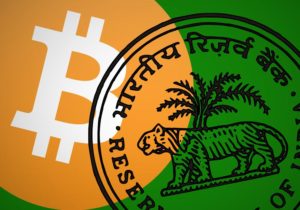According to some new reports, the Indian government has recently completed drafting a proposal that would regulate the use of cryptocurrency and possibly recognize Bitcoin and other cryptocurrencies as their own form of asset class. The Indian news website Business Line reported on Monday that the proposal was delivered to Finance Minister Arun Jaitley by a nine-member Interdisciplinary Committee that included representatives from Reserve Bank of India, the Securities and Exchange Board of India, BITI Aayog, and the Department of Financial Services. The proposal was delivered just as Bitcoin analyst Chris Burniske noted that Indian Bitcoin trades comprised 10% of the global cryptocurrency exchange in May. 
The effort to organize and institute Indian regulations on cryptocurrency officially began in March, when the independently-formed cryptocurrency regulatory committee DABFI (Digital Asset and Blockchain Foundation of India, formed by members of Indian Bitcoin startups) approached the government to formulate regulatory measures that would enforce documentation requirements from their customers and prevent illegal activities. This led to the formation of the 9-person federal committee.
As of yet, the acts of buying, selling, trading, or mining cryptocurrency in India has never been officially illegal. A few Indian Bitcoin exchanges (Zebpay, Coinsecure, and Unocoin) have appeared. To combat the lack of federal regulations, the exchanges have been successful with self-regulating exchanges (Know Your Customer) and preventative measures to prevent money laundering. Undeterred by reluctance from the federal government, these new exchanges have attracted some investors and have slowly begun to gain footing in the global cryptocurrency community.
According to inc42, if the proposal to is passed, cryptocurrency investors would inherit a new set of taxes and guidelines regarding returns and transactions. Foreign payments made with cryptocurrency would fall under the Foreign Exchange Management Act.
Essentially, cryptocurrency receives a trade off in the form of higher regulations for greater trust and a possible position as a popular option for mainstream use. The official passing of the proposal will be the final word–although a ban on cryptocurrency is possible, it is extremely unlikely. However, it is very likely that Bitcoin will see another boost in value as it gains a greater foothold in India after the official regulations are put into place.
From a user-based standpoint, it seems that cryptocurrency is there to stay in India. According to a Trak.in report, 50,000 Bitcoin wallets were in possession in India in 2016, with a daily trade volume of 700-800 coins. The progress of the proposal is evidence that the Indian government has begun to take the technology seriously.
Meanwhile, in China, the country’s central bank (The People’s Bank of China) has developed a beta version of a cryptocurrency that could be put into circulation in the relatively near future. Indeed, the former Reserve Bank of India Governor Raghuram Rajan said in December 2015: “I have no doubt, that down the line, we will be moving towards primarily a cashless society and we’ll have some kind of currencies like this which will be at work.” With the legalisation of Ethereum and Bitcoin as legal tender in Japan earlier this year and recent talks of the same happening in Australia, there can be no doubt that a global trend toward the mainstream use of cryptocurrency is forming.
